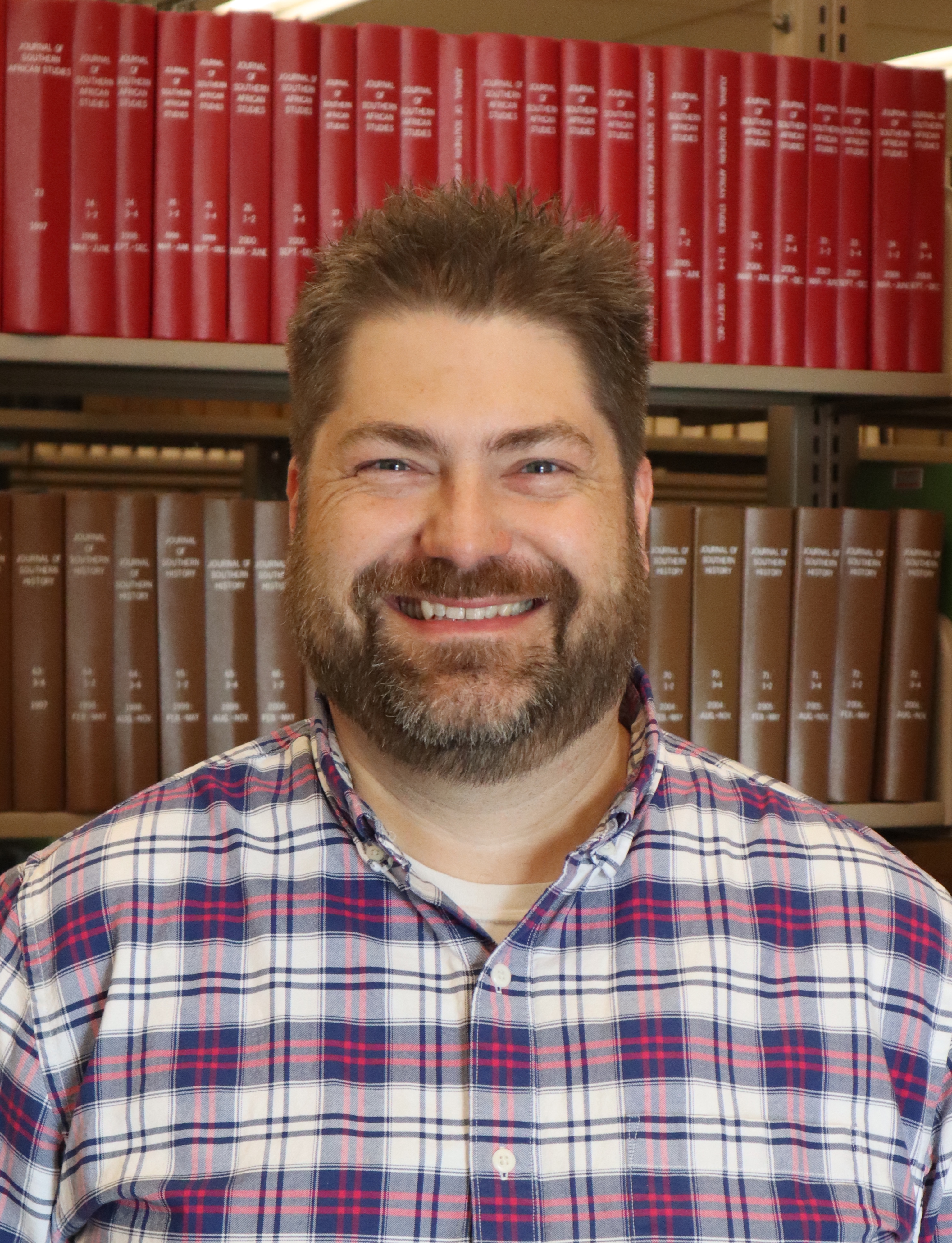Geo4LibCamp 2025: Sessions & Themes
The 2025 Geo4LibCamp will feature a mix of structured and flexible programming, including workshops, lightning talks, panels, a keynote, unconference sessions, and working sessions.
Conference Themes
Theme 1: Projects & Community Building
Hear stories from the field: new projects, lessons learned, and creative approaches to building stronger communities around geospatial libraries and open-source tools.
Theme 2: Services & Platforms
Explore the many ways libraries and support teams help others do geospatial work. Sessions will highlight service models, discovery tools, and strategies for connecting people with the data they need.
Theme 3: Data & Metadata Management
Dig into the nuts and bolts of geospatial data management. We will cover metadata strategies, schemas, workflows, licensing questions, and collaborative efforts like OpenGeoMetadata.
Scheduled Programming
Keynote - Mapping Prejudice: The Process is the Product
Michael Corey

Mapping Prejudice is a national leader in researching racial covenants, which are discriminatory clauses that were put into property records to restrict home ownership to only white people. The multidisciplinary team has built an 11,000-strong force of crowdsourcing volunteers called Community Mapmakers who transcribe suspected racial covenants and have, so far, mapped more than 65,000 racial covenants across multiple states.
The racial covenant data and maps they have produced have been instrumental in driving policy change, most notably as evidence that supported Minneapolis' elimination of single-family zoning in 2020. But the project's Community Mapmakers have taught the team that the real value of Mapping Prejudice's process is in the conversations that volunteers have with each other as they are confronted with stark evidence of this country's history of racial discrimination, which both transforms their understanding and inspires them to take more action in their communities. This insight has become the project's guiding principle: The Process is the Product.
Mapping Prejudice's Deed Machine software is built with people at the center in a time when loud voices are claiming that LLMs and other AI technologies are the only way to tackle big challenges. But Mapping Prejudice's Geospatial, Technical and Data Lead Michael Corey will argue that too many conversations about scale are focused on solving the wrong problems at a moment where researchers and their institutions desperately need more connection with the communities they purport to serve.
Panels
Geospatial Library Support Services
- Panelists will describe and discuss their approaches to providing geospatial support services in their libraries.
OpenGeoMetadata
- Panelists will describe and discuss their approaches to managing OpenGeoMetadata schemas and sharing repositories.
Workshops
Introduction to Allmaps
- Stephen Appel
-
An introduction to Allmaps: What it is and how to use it with digital map collections.
New Tools for Writing Code
- Eric Larson
-
Large Language Models are everywhere, including all our favorite code editors, terminal windows, and cloud-based integrated development environments. This workshop will provide a background on leveraging AI-assisted programming tools to sharpen your technical skills and clean up your codebases. No programming experience necessary.
Presentations & Lightning Talks
GIS and a Newly Established University Open Source Program Office
- Alex Marden
-
This talk will focus on the perspective of a GIS specialist working in a newly established university Open Source Program Office, sharing how an OSPO helps to platform campus-wide GIS and geospatial education and why an explicit focus on open source software is crucial when providing broad GIS support. Attendees will learn how an OSPO can help support the adoption and integration of open source GIS tools across the campus through resources, training, and fostering a community of practice.
BTAA-GIN Geodata Collection Pilot
- Karen Majewicz
-
An update on the progress of the BTAA-GIN's new Geodata Collection initiative, including new metadata fields, processing scripts, and planned next steps.
Running GeoBlacklight on GitHub pages
- Eric Larson
-
Well... you cannot run GeoBlacklight on GitHub pages. But, let's find a path forward anyway.
Deployment and Sharing of a World-Wide Geospatial Database of Political Entities
- Erin Mutch
-
Our recent paper and data publication "Cliopatria - A geospatial database of world-wide political entities from 3400BCE to 2024CE" discusses how data were developed, now the challenge is how we deploy and share this geospatial database to a broader audience.
An Introduction to East View's Global Geography Library
- Troy Aadland
-
This talk will provide an overview of the diverse content available within the platform, including maps, GIS data, charts, and reports. It will also demonstrate how this content can be easily accessed through the platform, as well as offline via WMTS services, offering flexibility for various use cases in research and education.
Highlights of the SDOH & Place Data Discovery Application
- Pengyin Shan & Adam Cox
-
A overview of SDOH & Place Data Discovery Application, a platform that provides access to spatially indexed and curated databases, specifically designed for conducting health equity research
Earthworks and GeoBlacklight
- Huda Khan (co-author Nick Budak)
-
An overview of Stanford's Earthworks geospatial data discovery application, including GeoBlacklight, the underlying software